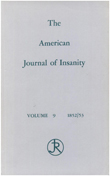Psychiatric interview and psychometric predictors of cardiac transplant survival
Abstract
OBJECTIVE: This study prospectively investigated the relation between pretransplant assessment of psychiatric diagnosis, coping skills, and social support and outcome measures of survival and health care utilization. METHOD: Ninety-four heart transplant patients underwent structured interviews and completed a battery of self-report psychometric tests assessing coping style, health status, and psychosocial supports. Follow-up that ranged from 9 to 56 months after transplant produced a group of 63 survivors and 31 nonsurvivors, who were found to be comparable in terms of pretransplant cardiac status and severity of illness. RESULTS: Survival analysis showed that dimensional psychometric measures of coping and social support based on patient self-assessment were the best significant predictors of survival. Considered separately, interview-determined ratings of social support and pretransplant compliance with treatment regimens were also potential predictors. Formal DSM-III-R diagnoses were related specifically to posttransplant hospital utilization (axis I diagnoses) and posttransplant health behavior (axis II diagnoses). CONCLUSIONS: The data demonstrate the value of multifaceted assessment, since psychiatric diagnosis, coping style, and psychosocial support may contribute differently to prediction of such aspects of outcome as mortality and health care utilization.
Access content
To read the fulltext, please use one of the options below to sign in or purchase access.- Personal login
- Institutional Login
- Sign in via OpenAthens
- Register for access
-
Please login/register if you wish to pair your device and check access availability.
Not a subscriber?
PsychiatryOnline subscription options offer access to the DSM-5 library, books, journals, CME, and patient resources. This all-in-one virtual library provides psychiatrists and mental health professionals with key resources for diagnosis, treatment, research, and professional development.
Need more help? PsychiatryOnline Customer Service may be reached by emailing [email protected] or by calling 800-368-5777 (in the U.S.) or 703-907-7322 (outside the U.S.).



